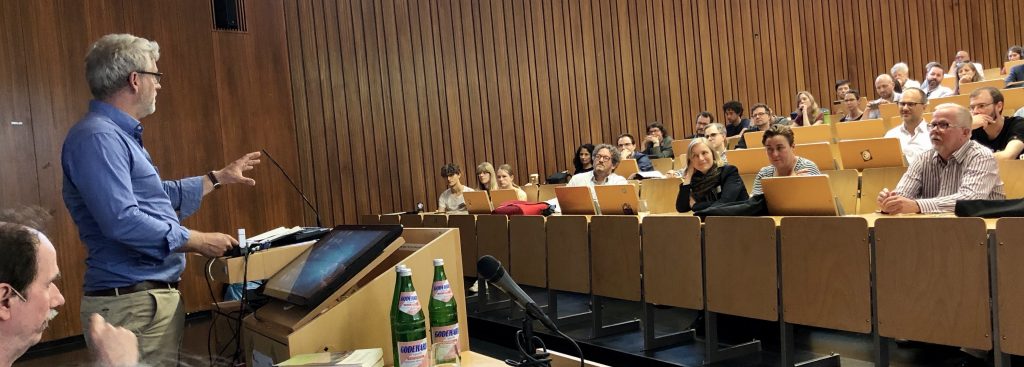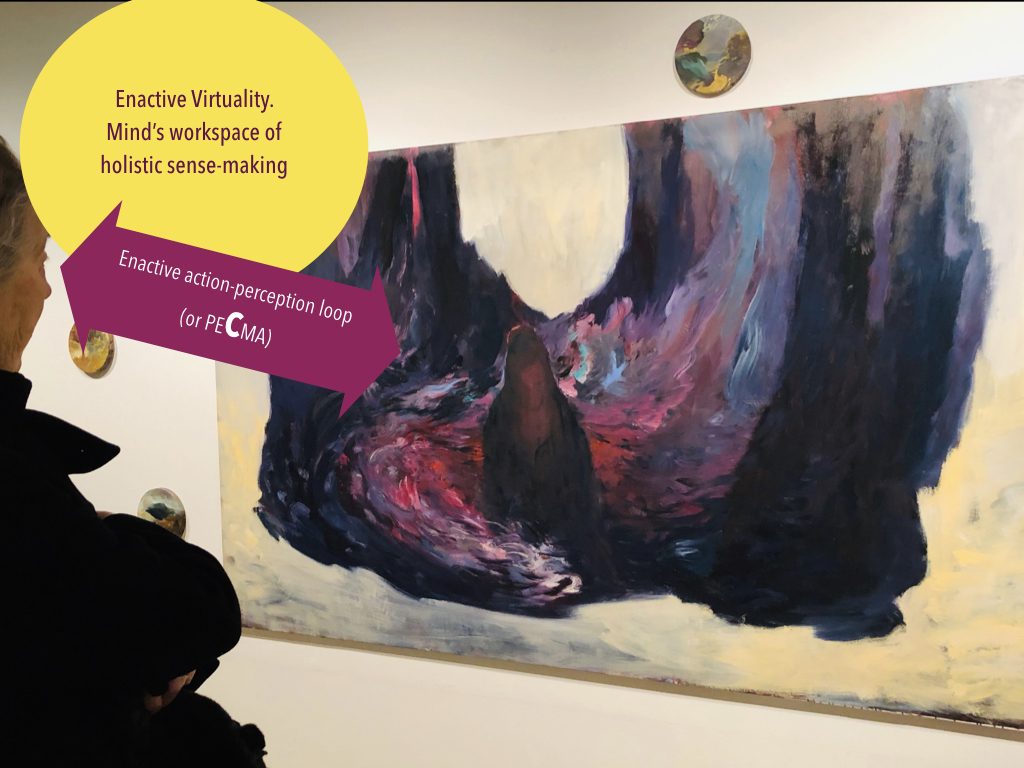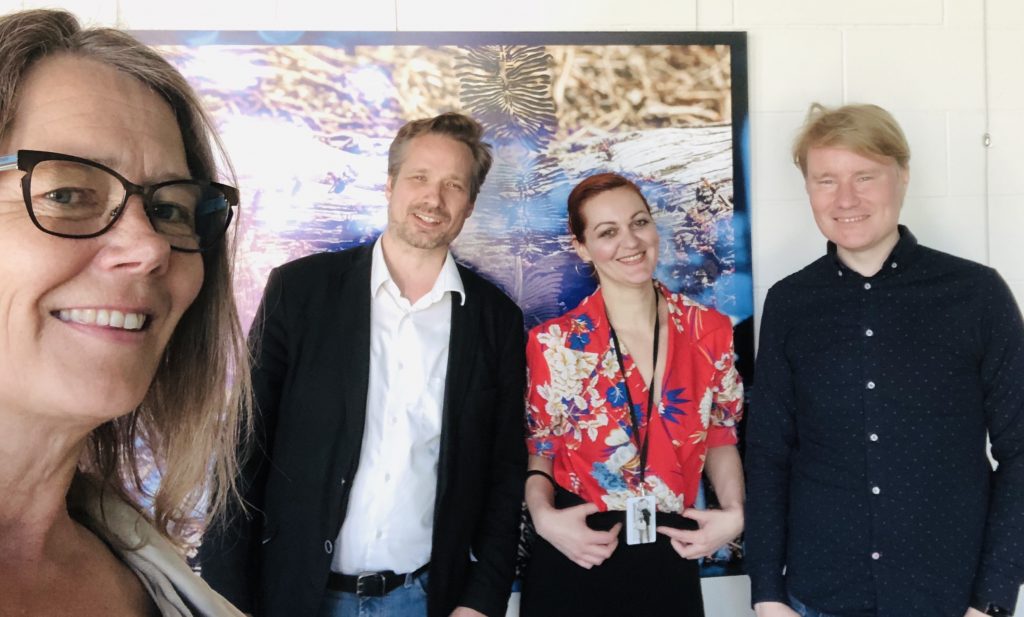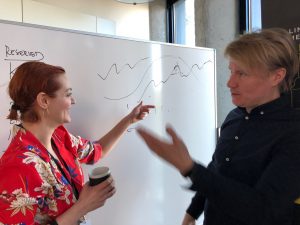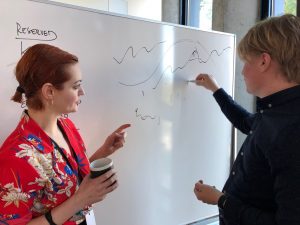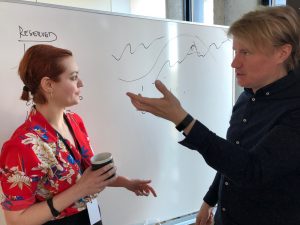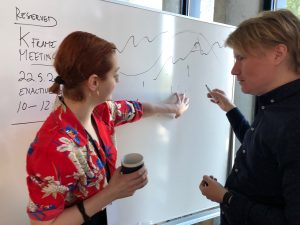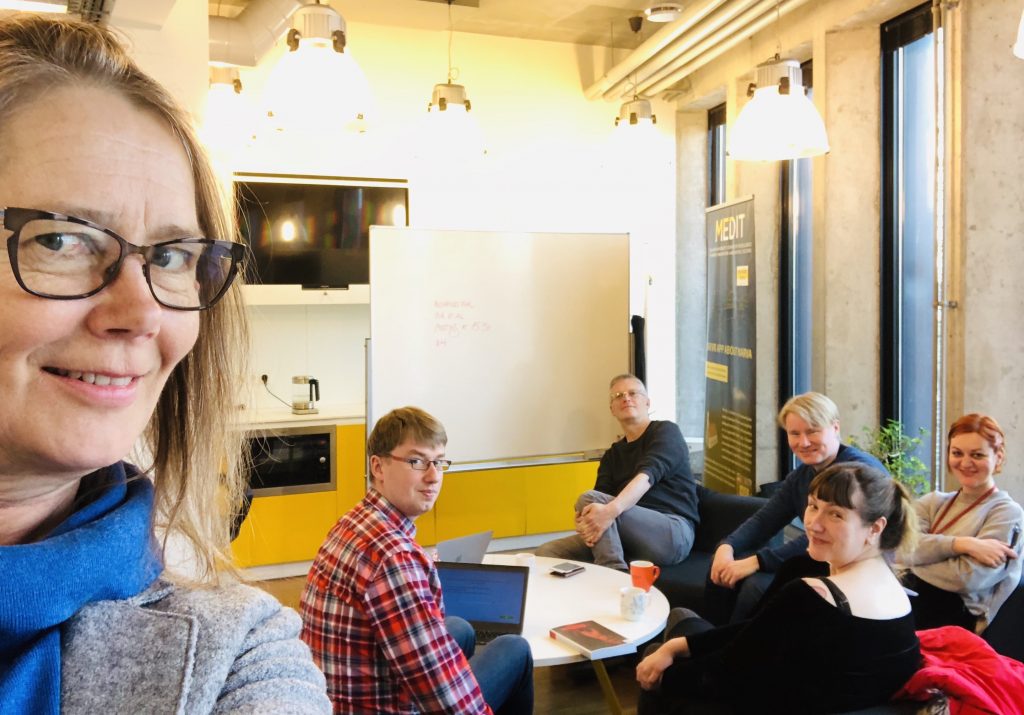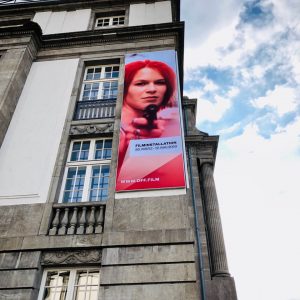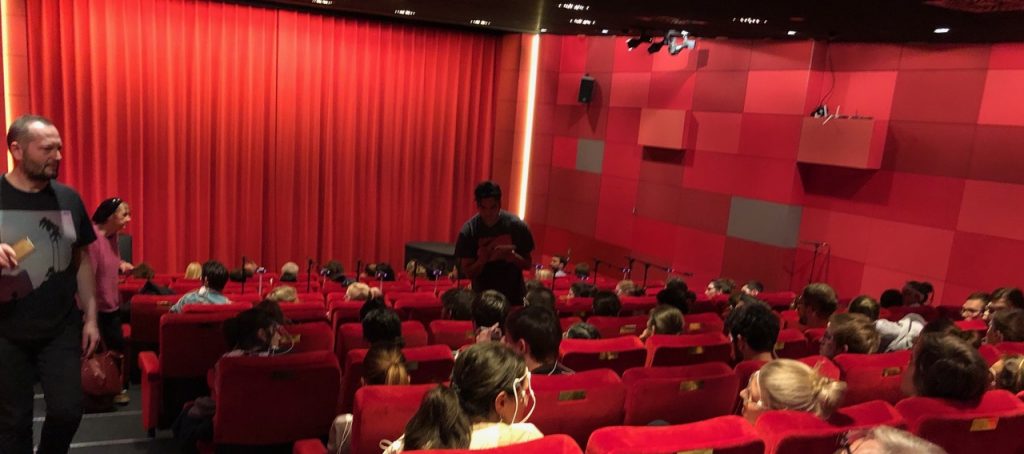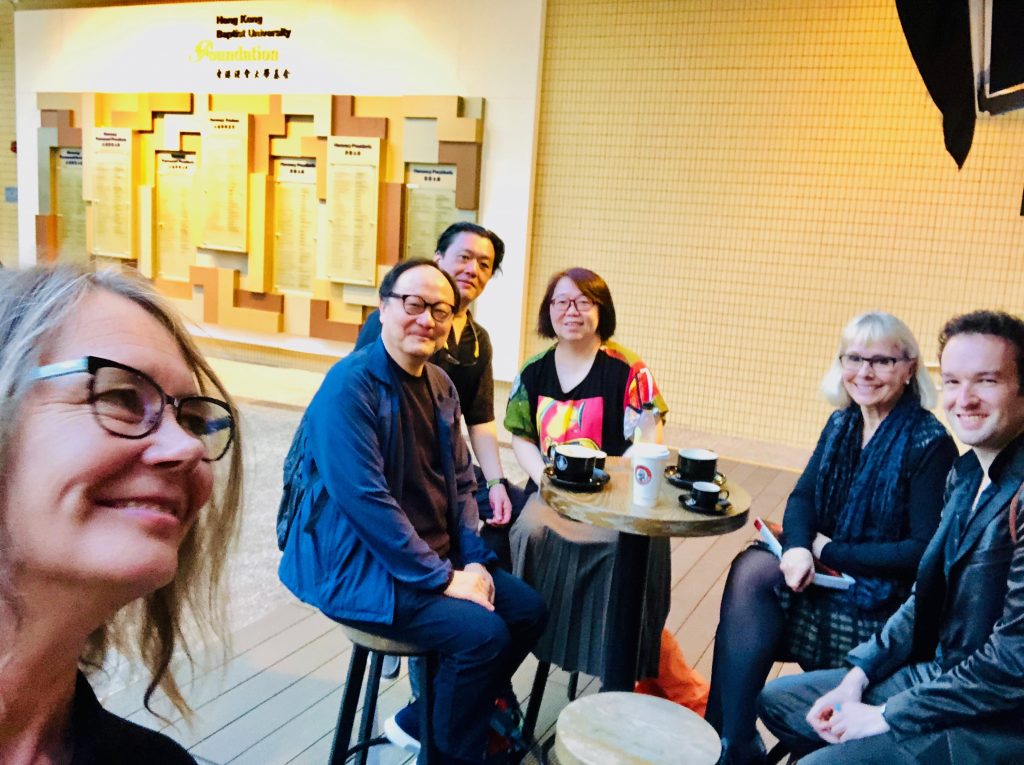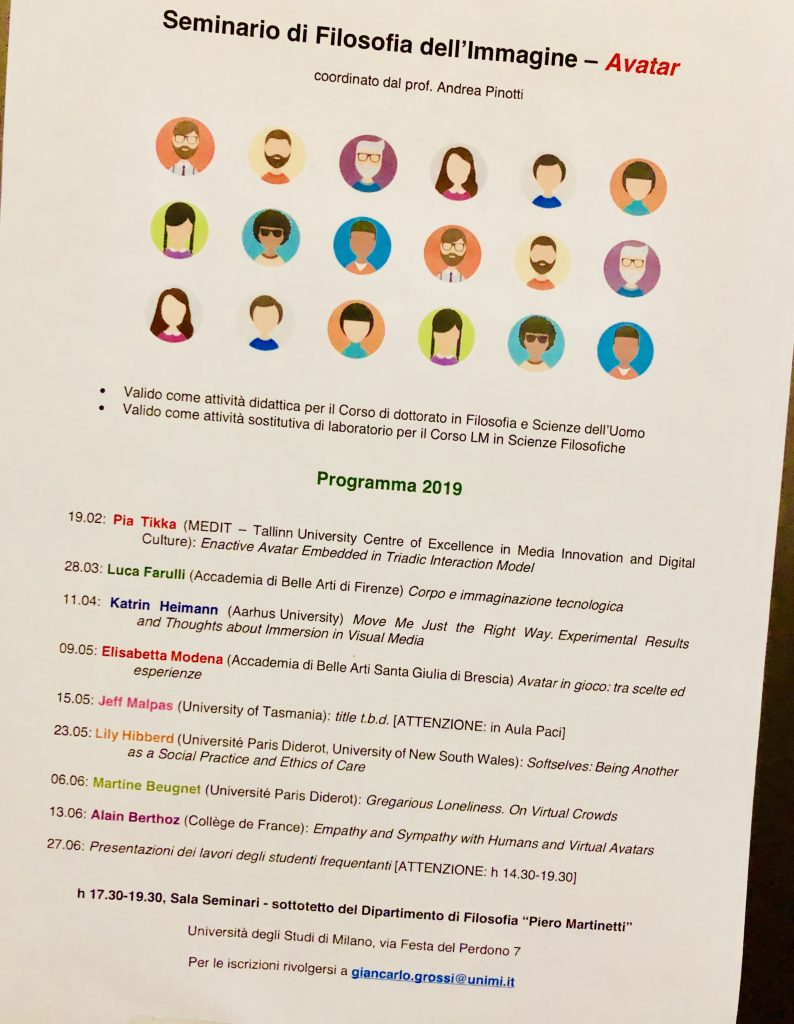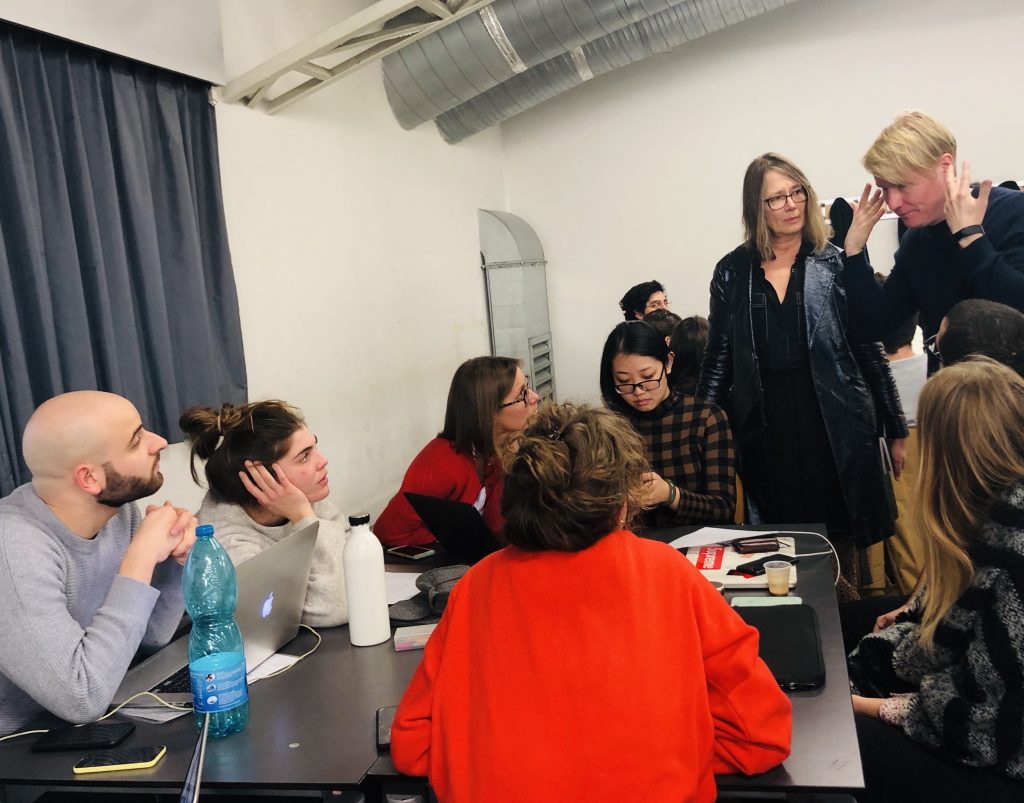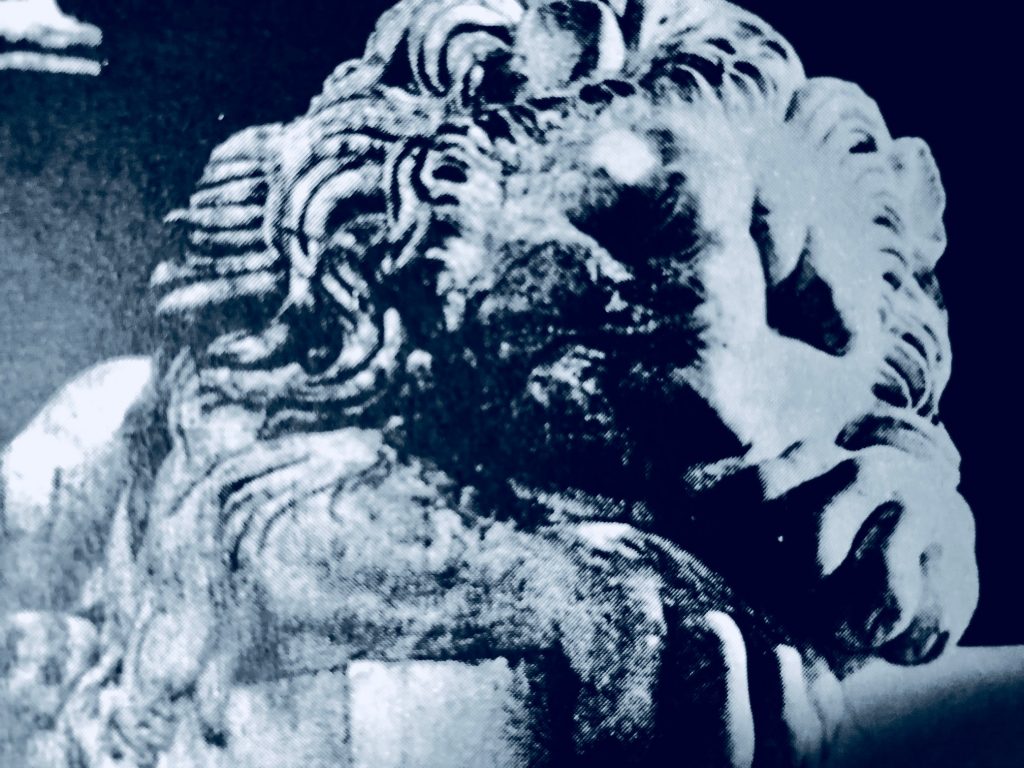ENACTIVE MIND IN DESIGN
Dr Ilkka Kosunen on affective computing, at the Enactive Mind in Design workshop, the 2nd workshop week organised by Enactive Virtuality Lab at Department of Design, Politecnico di Milano, invited by Prof. Francesca Piredda.
In this workshop we familiarise ourselves with the concept of enactive mind and learn by practical work how enactive narrative systems can be applied to designing media projects.
The concepts of enactive cinema (Tikka 2008) and enactive media (Tikka 2010) are discussed, against the theoretical foundations of enactive cognitive sciences (Varela et al. 1991). Accordingly, a holistic first-person experience can be understood as being and playing a part in the world. The approach suggest going beyond the conventional concept of human–computer interaction by emphasising unconscious interaction between the experiencing participant and narrative systems. Instead of directly manipulating the narrative, the unfolding of the story is affected by the participant’s enactive emotional participation, tracked, for instance, by biosensors.
LEARNING MODES:
Lectures with video screenings, reading articles, and discussing on enactive mind and narratives; instructed/tutored hands-on enactive design exercises in small teams, analysing and reviewing created projects, demos and/or concepts.
LEARNING OUTCOMES:
Basic understanding on enactive mind and enactive narrative systems
Basic understanding of the use of biofeedback in enactive media design
Hands-on designing and producing enactive narrative systems (proof-of-concept)
Collaborative team work and presentation skills
TEACHERS:
Prof. Dr Pia Tikka, Dr. Ilkka Kosunen, School of Film, media, art and communication & Center of Excellence MEDIT, Tallinn University; Several visiting lecturers (t.b.a.)
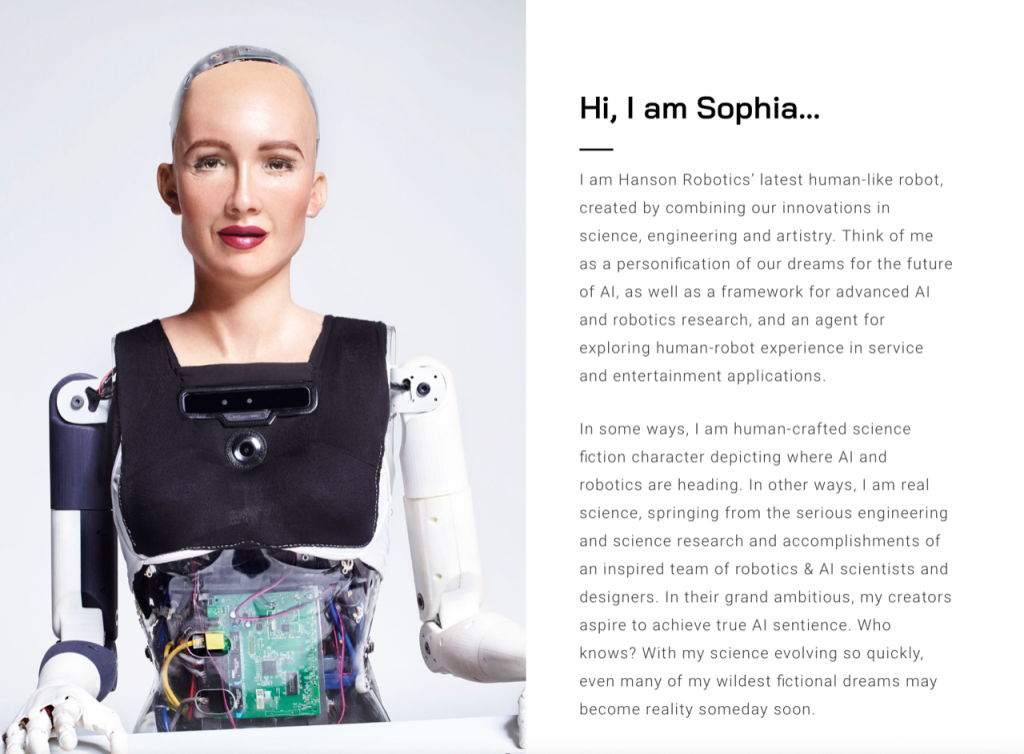
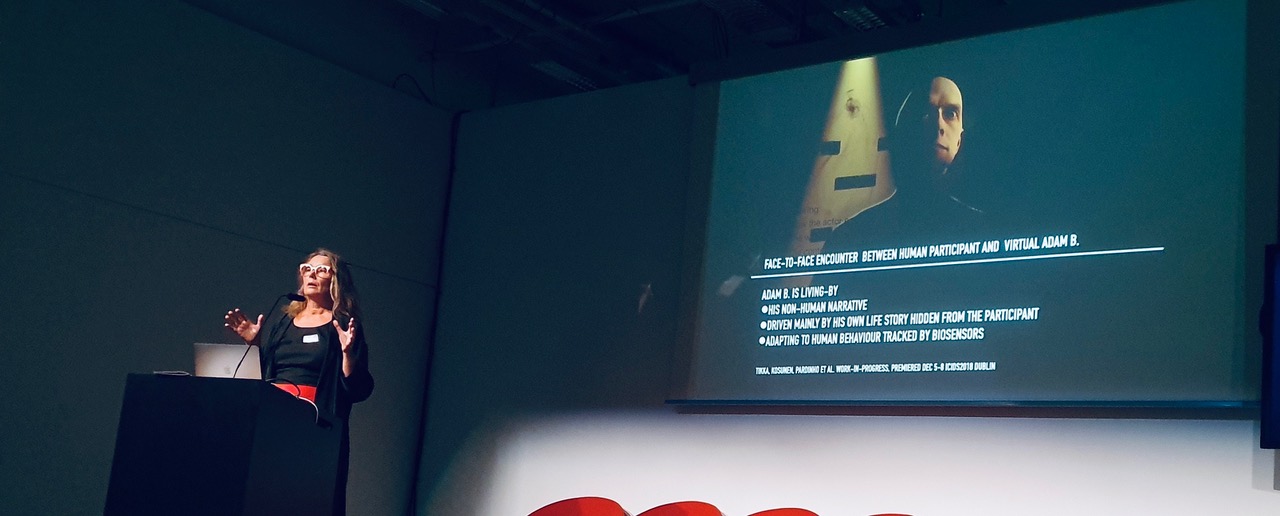
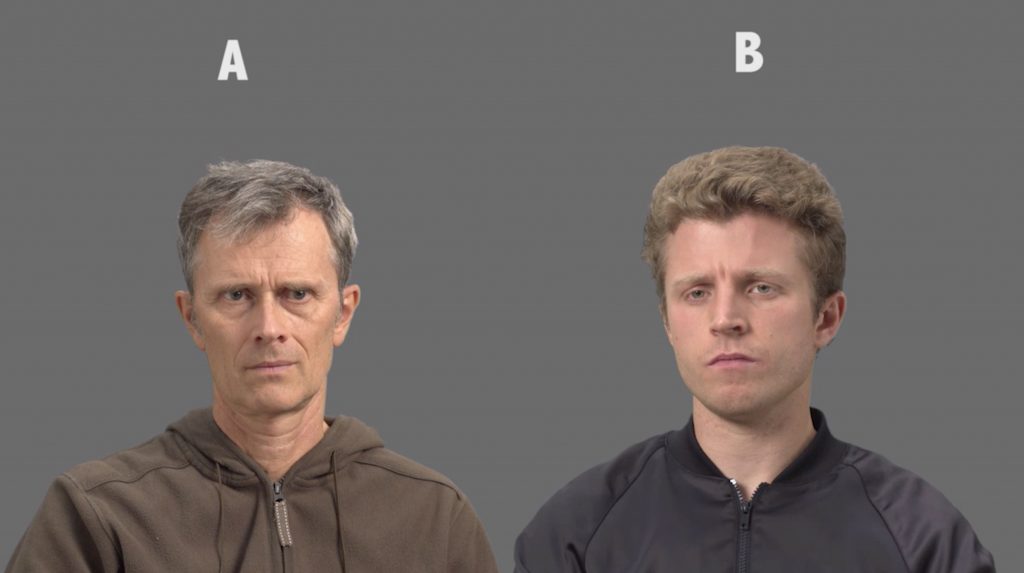
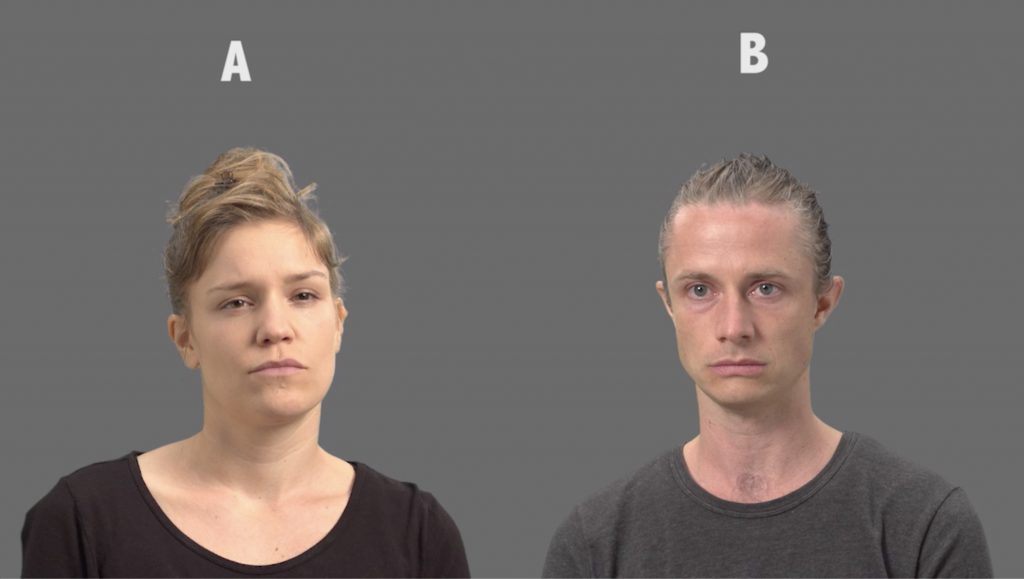
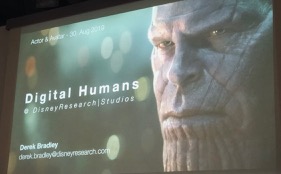
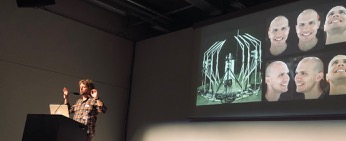
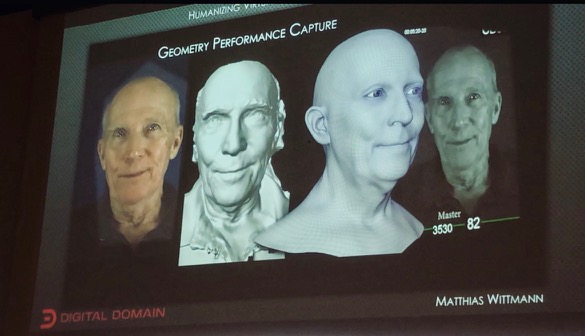
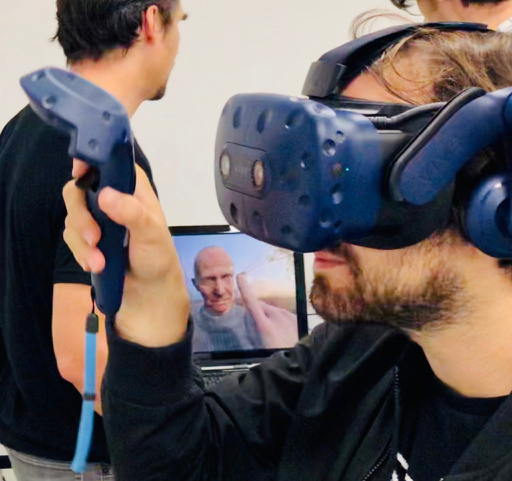
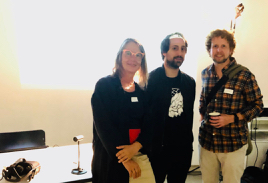 Industry engagement: Derek Bradley, Walt Disney Research Studio Zürich was one of the enactive experienters of facing Adam B in the State of Darkness. Here with Pia Tikka and Victor Pardinho (
Industry engagement: Derek Bradley, Walt Disney Research Studio Zürich was one of the enactive experienters of facing Adam B in the State of Darkness. Here with Pia Tikka and Victor Pardinho (